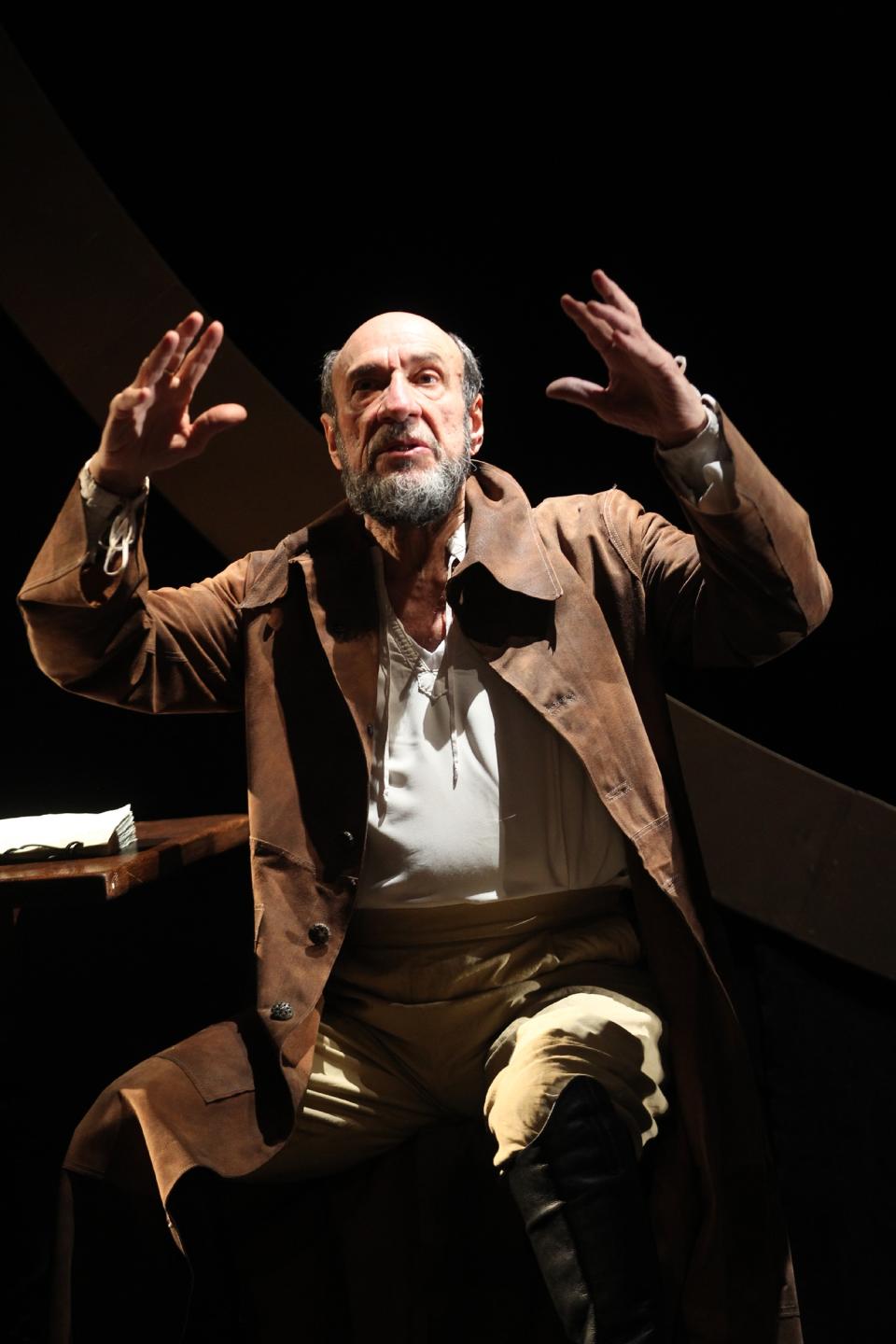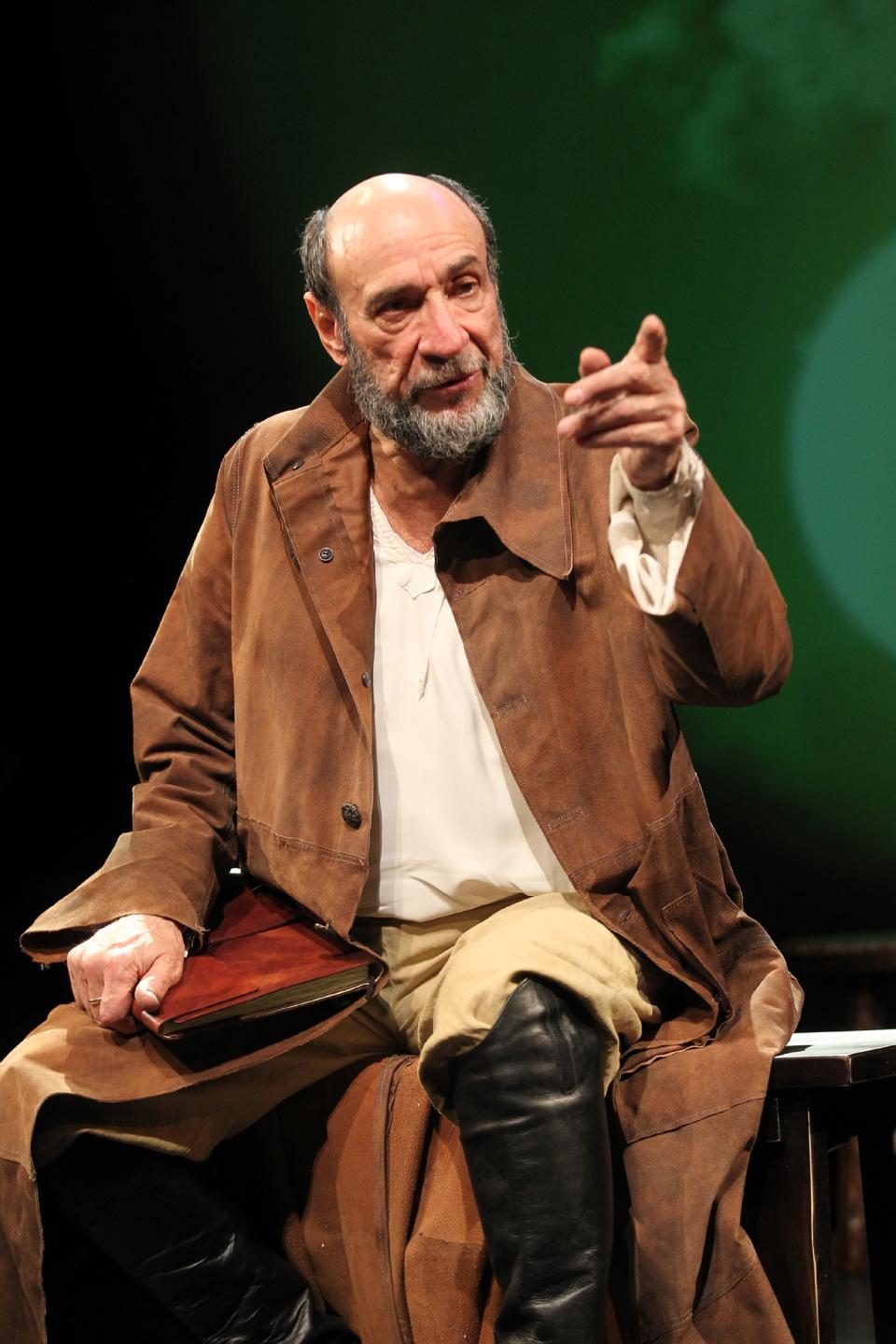Abraham stars off-Broadway in Brecht's 'Galileo'
NEW YORK (AP) — Theatergoers arriving at Classic Stage Company's new off-Broadway production of Bertolt Brecht's "Galileo" might feel like they instead wandered into a space show at the Hayden Planetarium.
The simple but elegant set employs the space above and around a stage modeled in the form of a giant sun dial, adorning the upper reaches of the theater with gracefully suspended globes, bold rings and splashy digital projections of astral images.
The lovely backdrop by Adrianne Lobel and lighting design by Justin Townsend conspire to create the illusion that the CSC's theater-in-the-round is an open-air stage, blanketed by the same brilliant stars that Galileo Galilei turned his telescope toward.
Academy Award winner F. Murray Abraham plays the famously persecuted scientist, displaying his unmistakable, commanding presence, in this fresh revival of Charles' Laughton's 1947 English translation of Brecht's German-language classic.
Unlike other translations of "Galileo," including notable ones by John Willett and Howard Brenton, this version is the product of a personal collaboration between Brecht and the translator.
The play, which opened Thursday for an engagement that has been extended through March 18, is more than simply a historical portrayal of Galileo's struggle against the oppression of the Inquisition, but also serves as an allegory about the abuse of power and repression of ideas in general.
It was first staged in Zurich in 1943, as World War II played out around Europe and the world. In 1947, Laughton, an actor by trade, played the title role in productions in Los Angeles and on Broadway.
Brecht's play follows the Italian astronomer's trials as he develops the telescope, studies Jupiter's moons and eventually promotes his theory that the earth revolves around the sun, and not the other way around.
The Roman Catholic Church, perceiving a threat in his intended reversal of the universally held belief that the earth is the center of the universe, forced him to recant his theory and sentenced him to house arrest.
Under the direction of Brian Kulick, CSC's artistic director, the production and its talented cast revolve around a captivating performance by Abraham, an Oscar-winner for his role in the 1984 film "Amadeus."
The predictably staid, long-winded script is chock full of heady, philosophical dialogue that might be mind-numbing at times even for lovers of the classics.
But the show benefits from several lively performances, particularly those by Aaron Himelstein in the role of a young monk, Amanda Quaid as Galileo's daughter and Steven Rattazzi in multiple roles.
Original music and sound design by the team of Christian Frederickson and Ryan Rumery also adds considerable entertainment value.
What is most compelling about Brecht's play is that the playwright doesn't paint Galileo as a hero with absolute virtue, but someone more complicated, more self-absorbed, someone who is not above accepting credit and financial gain for an invention that isn't his own. He's an idealist, but also a pragmatist who weighs his responsibility to his science against his desire to preserve his own personal safety, at times to the dismay of his most ardent followers.
The richness of Abraham's portrayal further humanizes Galileo, giving the play and its protagonist greater meaning beyond historical significance.
"The evidence of your own eyes is a very seductive thing," the mathematician reminds us. "Sooner or later, everybody must succumb to it."
___
Online: http://www.classicstage.org


